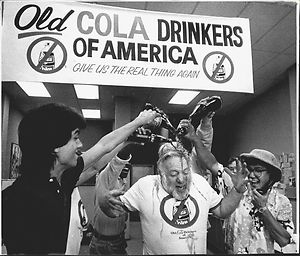Feb
8
Hocus Pocus Focus Groups
Posted by: konrad | February 8, 2013 | Leave a Comment
Millions of dollars spent on market research in the early 80s had the team at Coca-Cola convinced: people, especially the younger demographic, preferred the sweeter taste of Pepsi.
In fears of losing even more market share to its younger competitor, the beverage maker developed a new Cola that beat Pepsi in taste tests. The positive response from focus groups convinced Coca-Cola to abandon its original product in favor of the newly formulated “New Coke” in April 1985.
Unfortunately, as Coke turned sweeter, loyal drinkers turned bitter. Customers responded with angry phone calls and protests. Pepsi celebrated the move and ran advertisements claiming victory in the “cola wars” and ushering in “the Pepsi generation”.
By July, Coca-Cola had realized the inaccuracy of its market research and brought back the original formula.
So why was The New Coke a favorite in blind taste tests but not among real consumers? Firstly, they tested for only one variable: taste, while ignoring factors like strong sentimental value that contributed to sales. Also, taste testers only tried sips of each drink, which is not a realistic simulation of how the product is actually used. Lastly, the research did not differentiate between the more important opinions of loyal customers and those of occasional cola drinkers.
Marketers must make sure that their information truly is “The Real Thing”.
